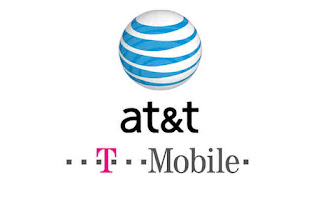As you may have heard earlier throughout the past year, AT&T had plans of buying out T-Mobile, thus creating a Service-Providing giant. AT&T, however, for some reason or another decided it wasn't worth it.
What that means for T-Mobile is:
- They get a nifty check for $3 billion
- A nationwide roaming agreement
- 128 individual spectrum licenses covering several of the biggest markets in the US
As a T-Mobile user, I really hope that they can bounce back from this and grow. According to gigaom.com:
T-Mobile picked up 128 cellular market licenses in the Advanced Wireless Service (AWS band) including spectrum in 12 of the top 20 largest markets: Los Angeles, Dallas, Houston, Atlanta, Washington, Boston, San Francisco, Phoenix, San Diego, Denver, Baltimore and Seattle. DT didn’t identify the specific licenses it won, but a quick glance at AT&T’s spectrum holdings show that these are no paltry chunks of frequencies. AT&T holds a 20 MHz block in Los Angles and Dallas, though its east coast portfolio tends to be confined to the smaller 10 MHz blocks. Unless AT&T is carving up its licenses in weird ways, it’s forking over a lot of bandwidth.
So basically AT&T not only doesn't get T-Mobile and everything they have, AT&T forks over $3 billion, 128 cellular market licenses, and a nationwide roaming agreement.
Is anyone else confused? Oh well, it's politics. If you figure out why, send me an email or tweet me on Twitter. Thanks.
Related articles:
Quad Core Super Phone Coming Soon
Raising the Bar: New Innovative Phone Concept by Android
HTC Rezound HYPE Analyzed
Android Doesn't Exist










